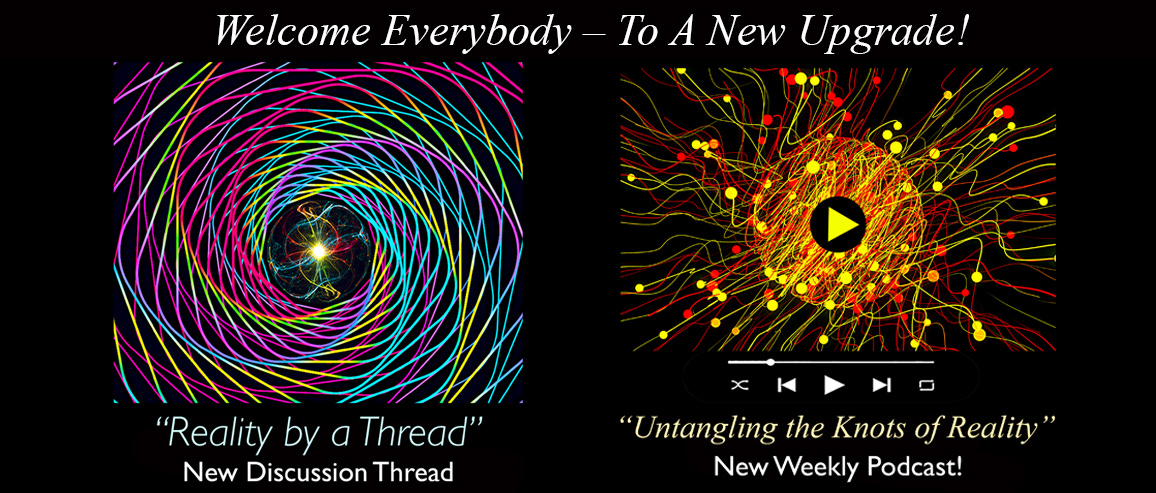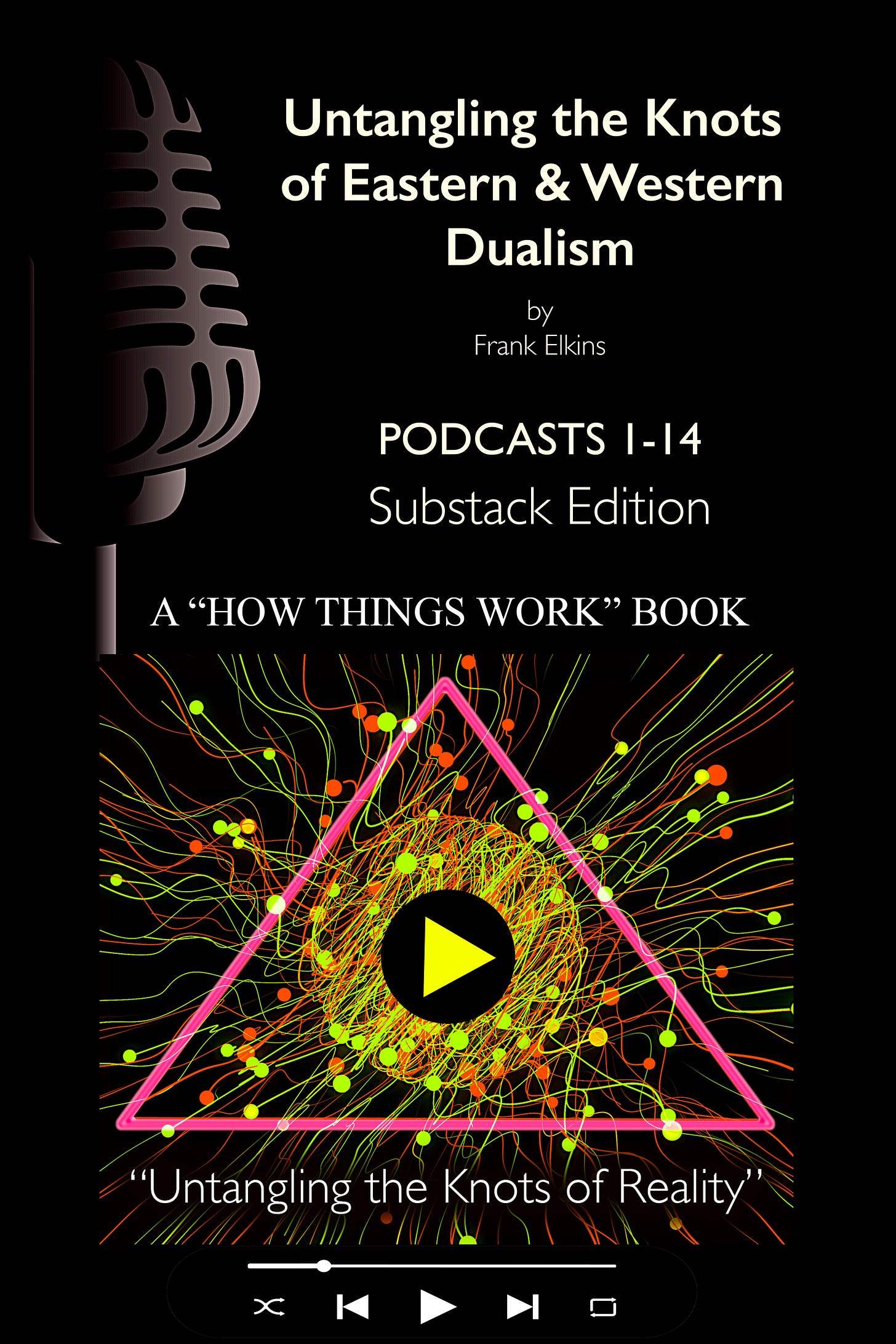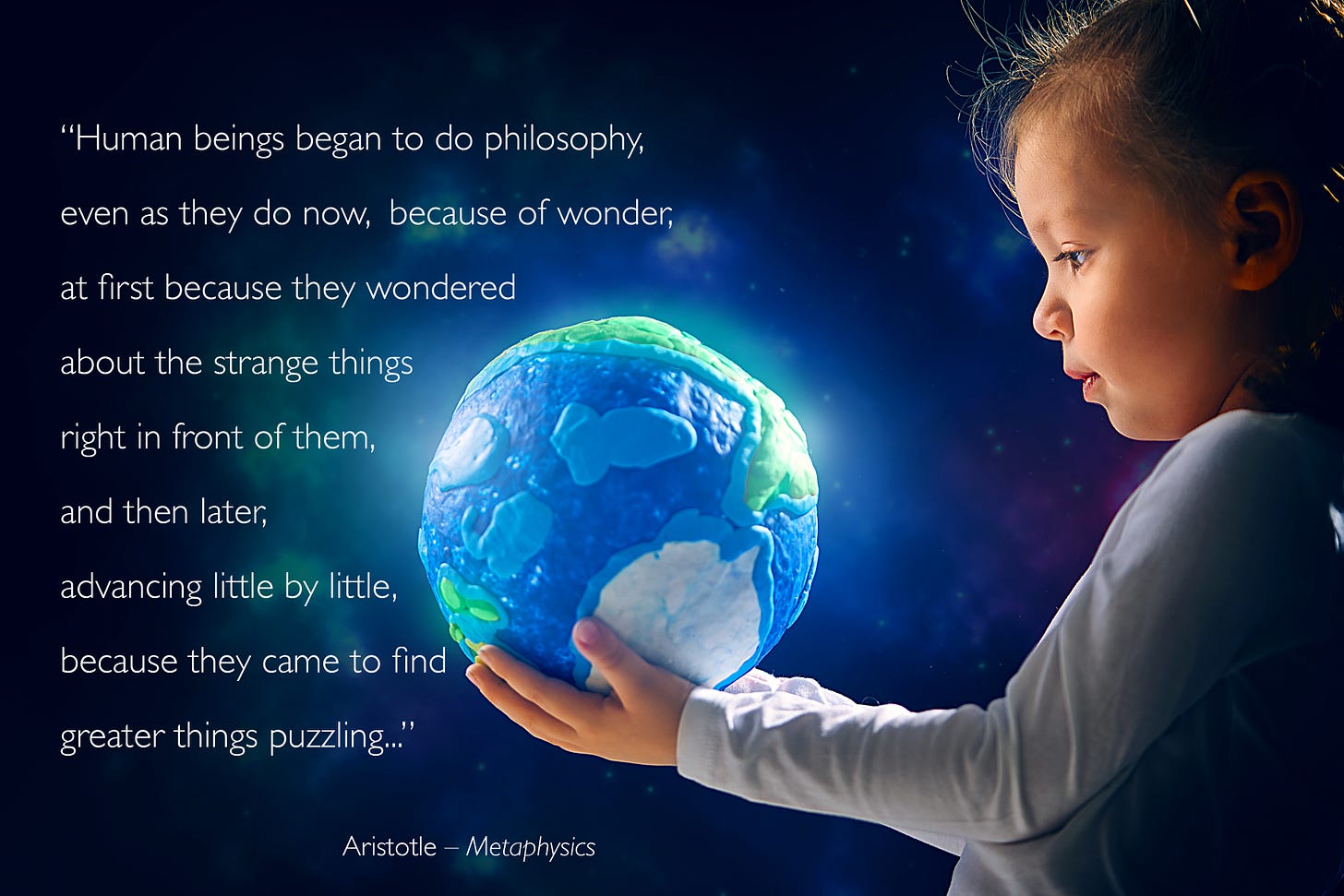How Things Work: A Brief History of Reality
SPECIAL HOLIDAY EDITION: Consideration #61. "Kwanza – The First Modern Holiday"
Be A Part of the Conversation!
Tuesday, December 13, 2022
"Service to others is the rent you pay for your room here on earth." – Muhammad Ali
PREFACE
Traditionally, the “Holiday Season” has been a balance between the two secular holidays of Thanksgiving and New Year’s Day and the two religious’ holidays of Hanukkah and Christmas. However, that changed in 1966 when the first modern holiday, specifically celebrating the “African-American” experience, was introduced into the “Holiday Season.” After the devastating Watts Riots of 1966, American activist Maulana Karenga created the celebration known as “Kwanzaa” as a way of reconnecting African Americans with their traditional African heritage and roots.
“Although specifically designed to reflect the unique needs of the “African American” community; all cultures are encouraged to celebrate this holiday.”
Because Kwanzaa is a secular holiday, it can be celebrated by people of different faiths, or those with no religious beliefs whatsoever. Although specifically designed to reflect the unique needs of the “African American” community; all cultures are encouraged to celebrate this holiday. Originally designed to be an “alternative” to Christmas, many people now celebrate both holidays as part of their Holiday Season.
Kwanzaa is a seven-day celebration occurring from December 26 – January 1.
CONSIDERATION #61 – Kwanzaa (First Fruits)
Much like “Latin” was once the language of Christianity, and Hebrew is the language of Judaism, Kwanzaa was constructed based on the language of Swahili. This language was chosen because it represented an African language not defined by any specific African nation or heritage. Kwanzaa is part of the Swahili phrase, “matunda ya kwanza,” which means “first fruits.” Wikipedia describes how this name was derived for the holiday:
“According to Karenga, the name Kwanzaa derives from the Swahili phrase matunda ya kwanza, meaning "first fruits". First fruits festivals exist in Southern Africa, celebrated in December/January with the southern solstice, and Karenga was partly inspired by an account he read of the Zulu festival Umkhosi Wokweshwama.”
Like other holidays in the Holiday Season Kwanzaa is celebrated with singing, dancing, storytelling, poetry reading, feasting and gift giving, in addition to perhaps some African drumming. The traditional colors of Kwanzaa are green (representing the fertile land of Africa), red (representing the blood of Africans struggling for freedom), and black (representing the people of Africa).
Kwanzaa is based on the seven tenets of Umoja (Unity), Kujichagulia (Self-Determination), Ujima (Collective Work and Responsibility), Ujamaa (Cooperative Economics), Nia (Purpose), Kuumba (Creativity), and Imani (Faith). One of these principles is celebrated on each of the seven days of Kwanzaa. In addition, children are encouraged to participate and contribute to the discussion of these principles.
“Another aspect of sharing is done by allowing everyone, including children, to speak on a topic that is relevant to the principle of that day.”
In an article entitled “7 days of Kwanzaa: A celebration of community and heritage” Tiffany Washington of BellaMagazine.com describes the concepts of “sharing” in Kwanzaa while providing an example of children participating in that sharing:
Another aspect of sharing is done by allowing everyone, including children, to speak on a topic that is relevant to the principle of that day.
"During an evening at a friend's home, we were preparing to start our discussion on the principle of that day when an 8-year-old boy said that he wanted to speak on kujichagulia (self-determination) instead. We agreed,'' she says.
"This young man went on to speak with the wisdom of someone much older. He spoke about how he had often started things without finishing them, and he was now making a commitment to do his very best at each task and to complete it even if it was difficult."
Although “gift giving” is a part of the Kwanzaa celebration it is not the main emphasis of the holiday. In fact, Kwanzaa gifts are generally “homemade,” reflecting a personal sharing of the person giving the gift. This is pointed out in Washington’s article:
"Kwanzaa is not a religious holiday. It is a cultural celebration. It is a viable alternative to commercial holidays,'' Rashied says. "The emphasis is not on the gifts that are exchanged but is on the intent behind the giving… Rashied is quick to add that she is not against shopping for some gifts but wishes that more people would use their creativity and talents to make gifts, such as "the simple act of giving a dish that was made with love or an item that was sewn with love.''
Although originally a celebration specifically created to reconnect African Americans with their cultural heritage and history; Kwanzaa, much like other holidays celebrated during the Holiday Season, reflects a connection to the entire community. As Williams establishes in her article:
The seven-day period of Kwanzaa is meant to be a time of celebration, reflection, affirmation and connection. Though it is rooted in African traditions, it is not solely recognized, studied or celebrated by people of color.
"My family uses each of the seven days of Kwanzaa as a lesson for living a better life,'' says Rashied, owner of Oliver's House of Flowers and Gifts.
Shaw, pastor of The House of the Lord, has been celebrating Kwanzaa since 1995. She points out the importance of embracing all people, without regard to race or religion.
"Kwanzaa's principles require that we connect with our entire community," Shaw says.
Like many holidays, Kwanzaa reflects a modern-day interpretation of our cultural past. However, unlike many holidays, Kwanzaa represents a “new” modern application of that knowledge and history specifically created for the modern-day problems related to African Americans.
“…Hanukkah, Christmas, and Kwanzaa, are all holidays originally established by a group of once persecuted people…”
It should be noted that Hanukkah, Christmas, and Kwanzaa, are all holidays originally established by a group of once persecuted people, the Jews, the Christians, and African Americans. For the Jews and Africans that persecution begins with slavery. For the early Christians, that persecution began with torture and capital punishment, starting with the crucifixion of Jesus, and later the death of many other Christians, including several of the Apostles.
Hanukkah was established in 165 BCE, Christianity began in the year “zero.” Thanksgiving is a “pre-colonial” secular holiday brought to America from Europe. New Year’s Day has been celebrated for over four thousand years. And in 1966 a new African American holiday called Kwanzaa was first celebrated.
It has now become included as a part of the American “Holiday Season.”
POSTSCRIPT
According to NationalToday.com a new Public Policy Poll estimates that approximately 4%, or over 12.5 million Americans, celebrate Kwanzaa as part of their “Holiday Season.” This is only slightly less than Americans who celebrate Hanukkah, which is approximately 5% of Americans. Although Christmas remains the central holiday of the “Holiday Season” with over 90% of Americans celebrating this holiday, Hanukkah and Kwanzaa have also become an important aspect of America’s Holiday Season with almost 10% of Americans celebrating these holidays as well. It seems logical that a nation as diverse as the United States would have a “Holiday Season” reflecting that diversity.
Famous Americans who have celebrated Kwanzaa include Oprah, Jamie Foxx, Maya Angelou, Nia Long, Malcolm Lee, Angelina Jolie, and reportedly Bill Clinton.
“…at its heart, the Holiday Season reflects the essence of life, liberty, and the pursuit of happiness.”
Like America, at its heart, the “Holiday Season” reflects the essence of life, liberty, and the pursuit of happiness. It is the dream of all who understand the potential promise of America; including all who came here, or found themselves here, who fought and struggled to finally have a seat at the table called the American Dream.
“…a reminder of a united movement towards greater perfection and a stronger union…”
Freedom, Thankfulness, and Hope for a better future are all celebrated once a year during the “Holiday Season” by diverse groups of Americans; a reminder of a united movement toward a greater perfection and a stronger union, which was the original intention that inspired the founding of the United States of America.
All Americans bring something special to the “table.” A past of turbulence and oppression that eventually led them here. The Holiday Season reflects all of those “pasts,” and even more importantly, binds us together in the hope of a better future. The Holiday Season provides a unique opportunity to remember and appreciate our unique diversity with joy, respect, and deference. An entire “Season” devoted to celebrating the quintessential experience known as America.
Next week a Special Christmas Edition Newsletter considering what we have commonly come to know as the “Christmas Story.”
Expand the Conversation by Upgrading to “Reality by a Thread!”
Excerpt from Tomorrow’s FINAL SPECIAL HOLIDAY EDITION Untangling the Knots of Reality – Podcast #27: “Untangling the Nature of Truth"
Final Free SPECIAL EDITION Podcast for 2022! Thanks to all my Paid Subscribers for making these Podcasts Possible! We will finish the Second Series by New Years! Happy Holidays Everybody!
This Week on “The Thread”:
•Untangling the Knots of Reality FINAL FREE SPECIAL HOLIDAY PODCAST – “Untangling the Nature of Truth’” (“Truth, in the form of honesty, is perhaps the single most critical component of civilization. Without truth and honesty, there can be no trust. A basic trust in each other is necessary for a civilization to function. If people do not trust each other, they cannot effectively work together. If people cannot effectively work together, civilizations cannot be built and maintained. This is because human beings experience reality through relationships…
A state of existence in which no one trusts anyone else is what Thomas Hobbes called “a war of all against all,” or what we commonly refer to as anarchy. Once this level of depravity is reached, a formidable power, or what Hobbes called a “Leviathan,” will seize control and restore order. However, the price of order is oppression. This is a cycle that has been repeated consistently throughout history.…” )
•Reality by a Thread (Discussion Thread): Preview of Book V – Wave-Particle Reality (“According to Einstein, Quantum Mechanics, and String Theory, reality ultimately consists of one thing: energy. In physical reality, energy takes the form of waves. However, from this energy, or from these waves, or strings, the atomic and subatomic “particles” that make up “matter” are generated or manifested. Energy, or waves, are converted into atomic and subatomic particles that follow the “laws of physics” through “mathematical principles” to formulate physical reality, or the universe. This is the essence of Empirical Quantum Consciousness. However, questions related to how and why these things occur “at this level of reality” go beyond the empirical limits of science....”)
•FREE PDF Download of Book IV: “The Cosmic Symphony – Overtones of String Theory,” Book I “Dualism,” and my New Book “Untangling Eastern & Western Dualism” plus other discounts and benefits.
UPGRADE NOW!
Simple, Unique, and Inexpensive Holiday Gift Ideas from “HOW THINGS WORK!”
Give unique and thoughtful gifts that your friends and family will not forget by New Year’s Eve!
GIFTS UNDER $10: PDF Downloads of my books make an excellent “last minute” holiday gift, particularly for those living far away. PDF files can be shared on a flash-drive or emailed instantly anywhere. And no postage!
Click for PDF Downloads from BooksNotOnAmazon.com
GIFTS UNDER $20: Deluxe Print Editions of my books make great gifts for your most unique friends and family members. However, printed books must be processed, packaged and shipped, so order early for the Holidays. There’s a lot of “supply-chain” issues this year!
Click for Deluxe Print Editions from Blurb.com
New & Now Available! – CLICK IMAGE to learn more…








